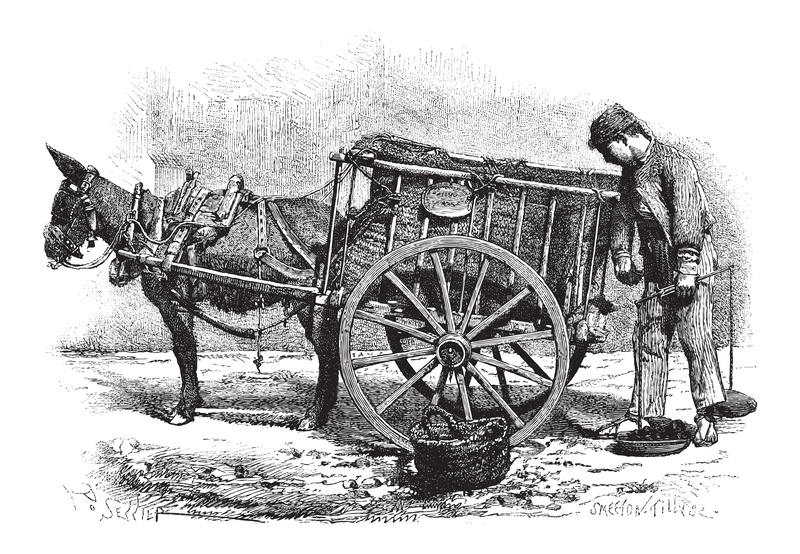Make PPE Waste Disposal Part of Your Daily Eco-Routine
In today's world, the use of personal protective equipment (PPE) has become an integral part of our daily lives. From face masks to gloves and face shields, PPE helps us stay safe, particularly during health crises like the COVID-19 pandemic. However, with increased PPE usage comes a surge in PPE waste--a new environmental challenge that demands responsible action. This article will guide you through how to make PPE waste disposal a seamless part of your eco-routine, ensuring your protective habits don't compromise the planet.
Understanding the Surge in PPE Waste
PPE waste disposal has become a pressing concern as millions of disposable masks, gloves, and gowns are discarded daily across the globe. According to several environmental studies, improper disposal of PPE can lead to massive pollution, endanger marine wildlife, and contribute to microplastics in our ecosystems.
- Face masks are now among the most commonly littered items worldwide.
- Disposable gloves are often found in landfills and water bodies, taking up to 400 years to decompose.
- Improperly discarded PPE waste can carry pathogens, posing risks to waste collectors and the public.
This overwhelming increase in PPE waste makes it essential for each individual to adopt sustainable PPE disposal practices as a daily habit.
The Environmental and Health Hazards of Poor PPE Waste Management
- Environmental Pollution: When PPE items are discarded irresponsibly, they often end up in rivers, oceans, parks, and public spaces. These non-biodegradable materials contribute significantly to plastic pollution and can take centuries to break down.
- Threat to Wildlife: Animals frequently mistake PPE waste for food or become entangled, leading to injury, suffocation, or death.
- Human Health Risks: Disposed masks and gloves carrying infectious agents can pose direct health hazards to sanitation workers and the general public.
- Spread of Microplastics: Over time, discarded PPE breaks down into microplastics, which contaminate the soil, water, and ultimately, our food chain.

How to Make PPE Waste Disposal Part of Your Eco-Routine
Making PPE waste disposal an eco-friendly practice doesn't have to be complicated. With a few adjustments to your daily life, you can significantly reduce your environmental impact and protect both human and ecological health. Let's look at actionable ways to dispose of PPE responsibly:
1. Segregate PPE Waste from Other Types of Trash
Never toss used PPE in regular recycling or compost bins. Most PPE, such as surgical masks and nitrile gloves, cannot be recycled due to contamination concerns and material composition. Adopt the following steps:
- Designate a separate waste bin: Set up a covered, lined bin specifically for PPE at home and at work.
- Seal used PPE: Place used masks and gloves in a plastic bag before disposing of it in the designated PPE bin.
- Do not flush masks or gloves: Flushing PPE can block sewage systems and pollute waterways.
2. Choose Reusable and Biodegradable Options
Reducing PPE waste at the source is the most effective strategy. When possible, opt for reusable masks made of cloth, which can be washed and sanitized. For situations where disposables are necessary, look for biodegradable PPE products made from plant-based materials.
- Reusable masks: Lower your environmental footprint by switching to multi-layered, washable masks.
- Biodegradable gloves: Some brands offer gloves made from natural latex or compostable materials.
3. Dispose of PPE Safely Outside the Home
When you're out in public, it's tempting to toss your used PPE into the nearest trash can. However, to ensure proper disposal:
- Carry a disposable or sealable bag: Keep a small bag in your pocket or purse to store used PPE until you can dispose of it properly at home or in a designated PPE waste bin.
- Look for special bins: Many public places now provide PPE-specific disposal bins--use them whenever possible.
4. Practice PPE Hygiene Before Disposal
To protect sanitation workers and prevent the spread of pathogens, ensure that used PPE is handled carefully:
- Wash your hands: Always clean your hands after removing and disposing of PPE.
- Avoid touching your face: Be mindful of where you touch on your face mask or gloves, and avoid direct contact with your eyes, nose, or mouth.
5. Get Involved with Local PPE Disposal Programs
Communities and municipalities are increasingly aware of the PPE waste problem and may offer special collection systems or recycling programs for certain PPE items. Being proactive and participating in these initiatives helps keep your environment cleaner.
- Check local guidelines: Visit your city or town's waste management website for updates on PPE waste collection policies.
- Participate in community clean-ups: Join or organize efforts dedicated to removing PPE litter from public spaces.
Debunking Myths: What You Shouldn't Do with Used PPE
- Do NOT recycle PPE in standard blue bins: Contamination risks mean used masks and gloves are not accepted in most curbside recycling programs.
- Incineration should be left to professionals: Burning PPE at home can release toxic fumes; only approved facilities have the proper technology.
- Flushing PPE is harmful: Never flush protective equipment--this can harm both plumbing systems and the environment.
The Crucial Responsibility of Businesses and Institutions
While individuals must do their part, businesses and public institutions play a crucial role in responsible PPE waste management. From hospitals to grocery stores, the volume of PPE handled is significant--requiring robust systems and effective communication.
- Provide labeled disposal bins: Workplaces and high-traffic businesses must make it easy for staff and customers to dispose of PPE correctly by offering clearly marked waste receptacles.
- Educate employees and patrons: Use signs, workshops, or briefings to inform about proper PPE disposal protocols.
- Partner with certified waste handlers: Ensure that collected PPE is transported and processed according to environmental regulations.
Embracing Innovation: The Emerging Field of PPE Recycling
Innovation is at the heart of environmental solutions. Several organizations and start-ups are experimenting with ways to recycle PPE waste safely or repurpose it into other useful materials. For example:
- Specialty recycling programs: Some companies collect used masks and gloves from institutions and use thermal or chemical processes to transform them into construction materials or energy.
- Research on compostable PPE: Universities and manufacturers are developing PPE from organic materials that break down harmlessly in the environment.
While not yet widespread, keep an eye out for these programs in your area and participate or advocate for their adoption.
Building an Eco-Mindset: Spreading Awareness and Action
The success of any environmentally friendly routine depends on widespread understanding and participation. Here are some ways to encourage your family, friends, and community to integrate sustainable PPE waste disposal into their daily habits:
- Lead by example: Show others how you safely dispose of your PPE and explain why it matters.
- Teach children proper habits: Encourage kids to use reusable masks whenever possible and make a game out of responsibly collecting PPE litter.
- Share knowledge on social media: A quick post about eco-friendly PPE disposal can inspire your network to take action.
- Support local campaigns: Join efforts to distribute PPE waste bins, host eco-workshops, or provide resources to those in need.
Towards a Greener Future: Innovations and Policy Change
The issue of PPE waste is unlikely to disappear in the near future. The integration of PPE waste disposal into society's eco-routine requires not just individual effort but also systemic change. Policy-makers can implement:
- Regulations on single-use PPE: Set usage limits or encourage manufacturers to shift towards compostable or recyclable products.
- Research and funding: Supports development of new materials and recycling technologies.
- Public education campaigns: Increases awareness on safe and green PPE disposal practices.
On a global scale, international organizations are recognizing PPE waste as part of the broader plastic pollution agenda, ensuring it remains a priority for action and innovation.

Your Eco-Friendly PPE Waste Disposal Checklist
Ready to make PPE waste disposal an easy, automatic part of your eco-routine? Use this handy checklist:
- Carry reusable masks and hand sanitizer to minimize disposables when possible.
- Use dedicated PPE waste bins at home, work, and in public spaces.
- Educate your household and peers on how and where to dispose of PPE.
- Explore compostable PPE products for when disposables are unavoidable.
- Participate in community clean-ups and campaigns to reduce PPE litter in your neighborhood.
- Stay updated on local guidelines and innovative recycling programs.
Conclusion: Make PPE Waste Disposal an Everyday Eco-Habit
Your commitment to eco-friendly PPE waste disposal makes a real difference. By
Let's work together to make proper PPE waste disposal second nature, so our safety routines support both our health and the environment!
